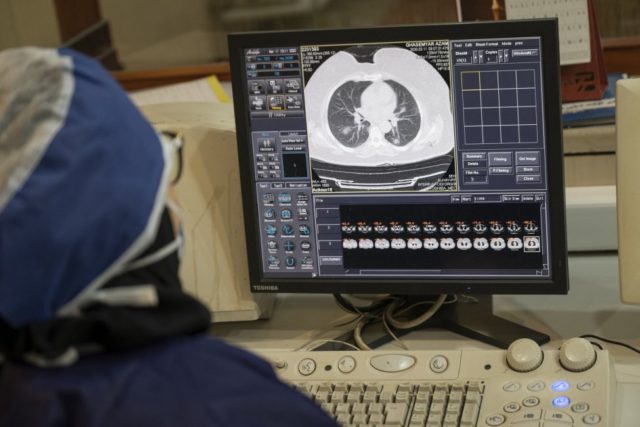Dec. 8 (UPI) — COVID-19 causes lung and kidney complications in at least 1 in 10 of those infected, according to a study published Tuesday by the Canadian Medical Association Journal.
The analysis of health insurance claims data for more than 70,000 people in the United States who sought treatment for the new coronavirus between March 1 and April 30 found that 28% had pneumonia and 23% had respiratory failure.
In addition, 12% had kidney failure and just over 10% had sepsis — a life-threatening illness caused by infection — or systemic inflammation affecting multiple organs, the data showed.
“Although the spectrum of disease for COVID-19 is wide, it is primarily a respiratory disorder in most patients,” study co-author William Murk told UPI.
“While we confirmed that COVID-19 is indeed associated with a variety of non-respiratory conditions, the actual risks of most of those conditions were low,” said Murk, a medical student at the Jacobs School of Medicine and Biological Sciences at the University at Buffalo in New York.
Earlier research has linked the virus with severe health complications, particularly in those who suffer serious illness after infection.
It’s believed that the damage to the heart, lungs and kidneys caused by COVID-19 is related to a “storm” of multi-organ inflammation brought on by the virus.
For their study, Murk and his colleagues reviewed inpatient and outpatient medical claims data for 70,288 people with health insurance in the United States.
The average age of the patients included in the analysis was roughly 65 years, and 56% were women, the researchers said.
More than half of the patients were admitted to the hospital, and approximately 5% were treated in an intensive care unit.
A minority of patients in the study, about 1% to 2%, experienced serious heart and lung problems, including collapsed lungs, blood clotting disorders and heart inflammation, the researchers said.
However, COVID-19 did not appear to be associated with a higher risk of stroke, they said.
“For most patients with COVID-19, symptoms are generally those of the common cold, including cough, fever, sore throat and runny nose,” Murk said.
“Patients may also experience other non-respiratory symptoms, though in most cases the risk of these are low,” he said.

COMMENTS
Please let us know if you're having issues with commenting.